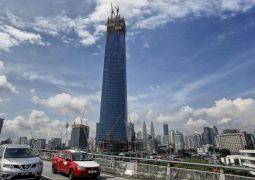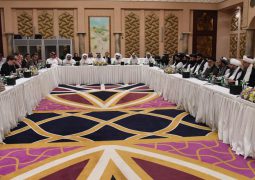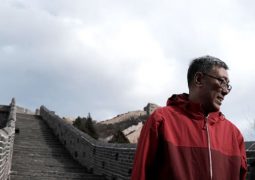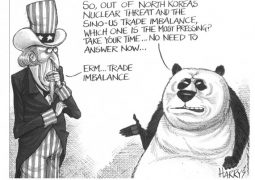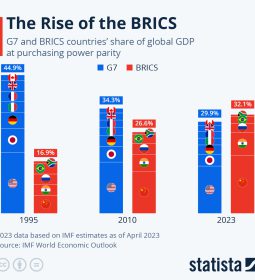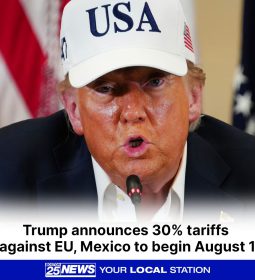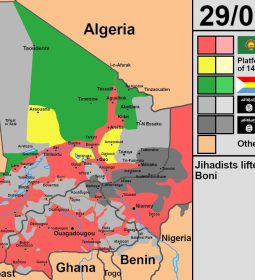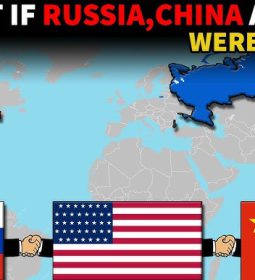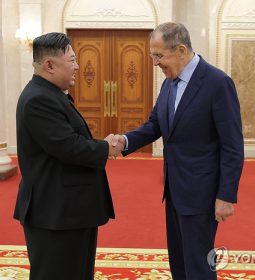Xi-Putin Lunar Year Call to strengthen limitless strategic Putin

The electric vehicle transition is well underway in China: Last year, roughly one-third of all new cars sold in the country were electric. One EV company predicts the share will pass 50 percent by June 2024.
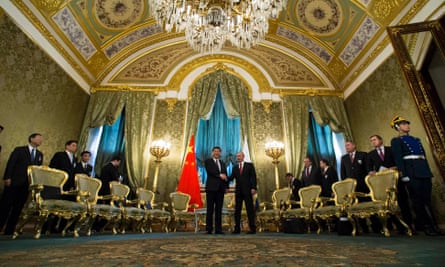
China’s President Xi Jinping and and his Russian counterpart, Vladimir Putin, entered the Year of the Dragon by exchanging greetings and affirming their bilateral ties on February 8, just two days before the start of the Lunar New Year. Beijing and Moscow’s mutual resentment and suspicion of the Washington- and Brussels-led alliance of democracies continues to provide shared political purpose. Economic complementarities, meanwhile, led bilateral trade to reach an eye-popping $240 billion in 2023 – itself a significant undercount, as China is almost certainly exporting billions of dollars worth of goods to Russia indirectly via Belarus and Central Asia.
Bilateral trade is booming while political ties remain robust. At the same time, a careful analysis of the two sides’ readouts of the Putin-Xi call suggests that key differences remain, including over energy.

Moscow’s Energy Leverage Over Beijing Is in Slow Decline, in Many Respects
Russia’s exports to China are concentrated in commodities, especially oil, gas, and coal. Consequently, Moscow unsurprisingly continues to regard energy as a critical feature of the relationship. In the Kremlin’s official readout of the call, Putin’s listing of cooperation items identifies the following priorities: energy, finance, infrastructure, and transport.
Bilateral financial ties are often not transparent, but interactions appear to have been curtailed after the United States authorized secondary sanctions on financial firms aiding Putin’s invasion of Ukraine.
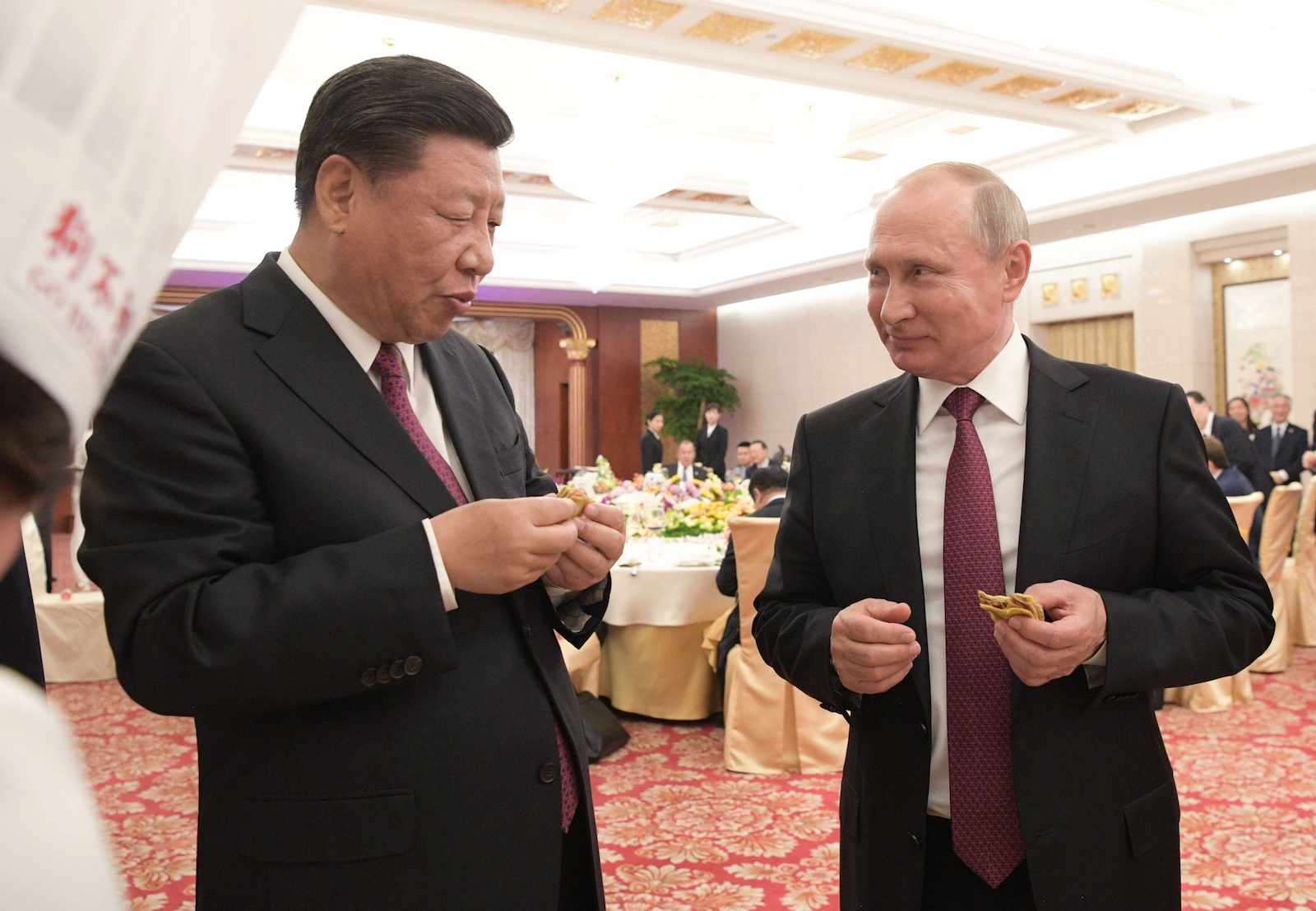
Chinese dual-use vehicle transport exports to Russia, meanwhile, have provided critical – and potentially decisive – support for the Kremlin’s war efforts. Chinese exports to Russia of excavators and other trench-digging equipment surged just as Russian forces began constructing the Surovikin Line of defensive fortifications.
Putin is also largely pleased with the state of bilateral energy and infrastructure ties with China.
Russia’s oil exports to China are robust. China’s imports of Russian crude oil stood at $60.64 billion last year, comprising about 47 percent of all Russian exports to China in value terms. Importantly, Russia accounted for 19 percent of all Chinese crude oil imports in 2023 by volume, making it China’s largest oil supplier.
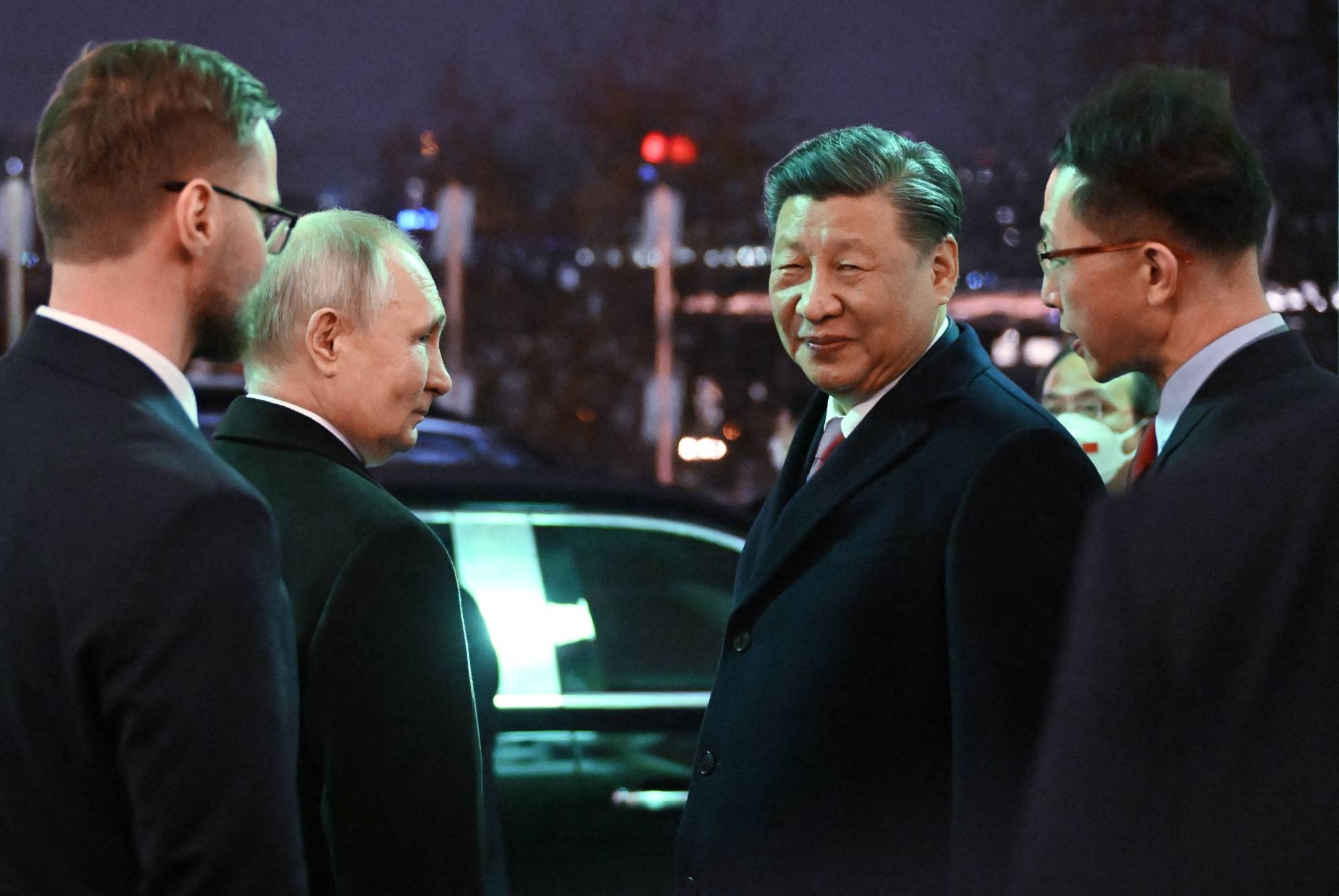
Moreover, while Chinese firms are receiving discounts on Russian crude, they are not complying with the “price cap” set by Western countries, a policy that seeks to maintain Russia’s export volumes but limit its earnings by setting a ceiling or “cap” on prices.
China’s imports of Russian crude oil will very likely remain robust over the medium term, especially if Beijing remains willing to accept that Russia will comprise a growing share of its import mix.
Russian exports of natural gas to China also rose sharply last year, increasing 62 percent year-over-year to reach $6.4 billion. Moreover, export volumes on the existing Power of Siberia Russia-to-China natural gas pipeline continued to increase as upstream production ramped up. Russia’s overland natural gas export volumes to China reached 22.7 billion cubic meters (Bcm) in 2023. Notably, Gazprom restated that exports volumes will reach the pipeline’s full capacity of 38 Bcm in 2025.
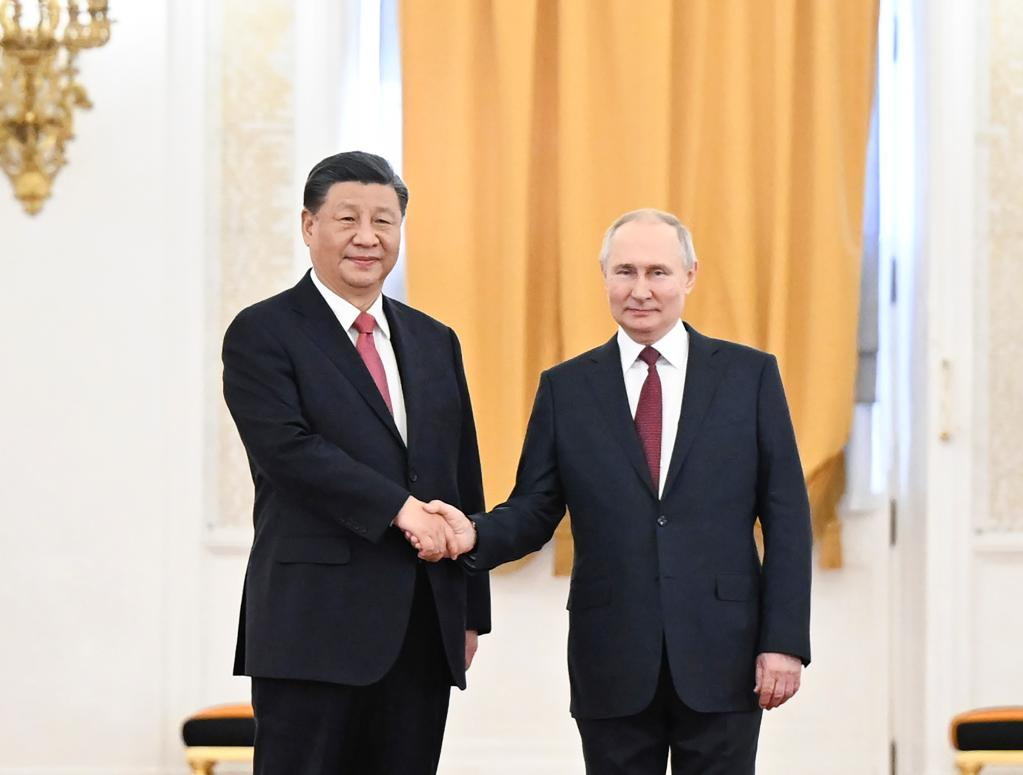
Chinese imports of oil will likely remain elevated, while its receipts of Russian pipeline natural gas are set to rise further in 2024.
Yet bilateral energy trade frictions remain.
China restored import tariffs on Russian coal in early January, in a move likely to degrade the competitiveness of Russian exporters vis-à-vis their Australian and Indonesian competitors. Over the medium term, China appears increasingly capable of eliminating all imports of thermal coal (which is used for power and heating) via its deployment of offshore wind and other technologies. For instance, China deployed nearly 217 Gigawatts of solar in 2023 alone – that’s more than any other country has deployed in total.
Indeed, China’s deployment of various energy technologies, such as solar, onshore and offshore wind, batteries, heat pumps, and energy efficiency for buildings, is dimming its interest in the proposed Russia-to-China Power of Siberia 2 natural gas pipeline, which suffered yet another delay recently. Due to the project’s astonishingly poor economics, the pipeline will likely never be built, unless Beijing decides to move forward for non-commercial reasons.
While Putin ardently seeks a pipeline deal, the official Chinese readout of the Putin-Xi phone call suggests that Beijing understands its very strong negotiating position in ongoing natural gas negotiations with Russia. Xi’s readout did not directly mention energy cooperation at all.
Meanwhile, around the time of the bilateral phone call, Chinese state media prominently featured Putin’s criticism of Germany’s refusal to accept Russian natural gas. The People’s Daily also amplified the Russian state’s messaging on the Nord Stream natural gas pipeline.
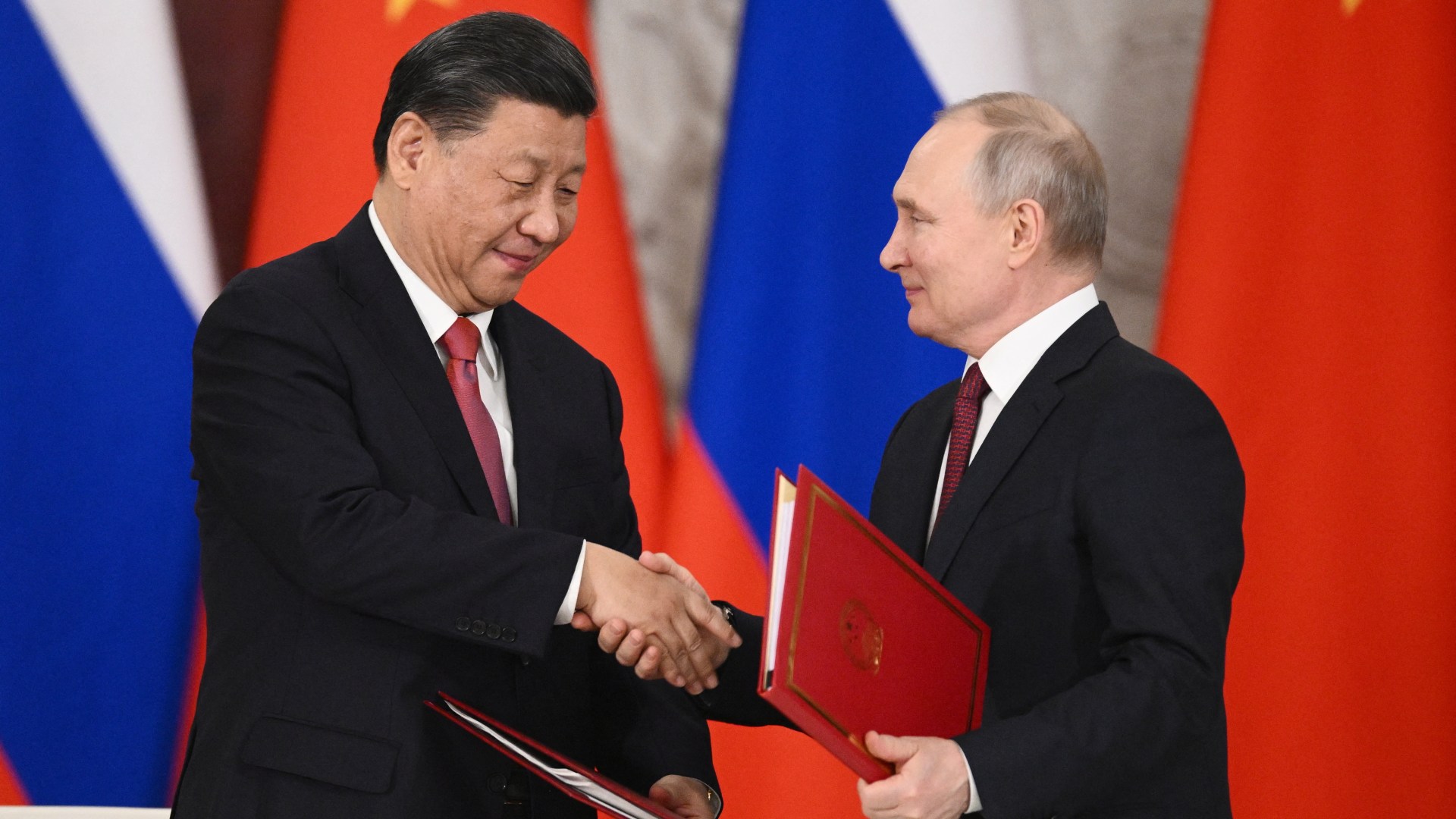
In sum, Beijing seems to be hinting to Moscow that Europe – not China – should be its target market for incremental natural gas volumes. A resumption of large-scale Russian natural gas exports to Europe would require a political earthquake in the West but is not inconceivable, especially due to the upcoming U.S. election.
“Unprecedented” vs “Historically High” Levels of Cooperation
Finally, there was an interesting divergence in the two sides’ characterization of bilateral political ties.
The Chinese side said that bilateral relations have reached an “unprecedented high level,” in a rhetorical continuity with messaging apparently first developed in the summer of 2021. Putin, meanwhile, stated that ties are at a “historically high level” – rhetoric he has used before, including at the 3rd Russian-Chinese Energy Business Forum on November 29, 2021.
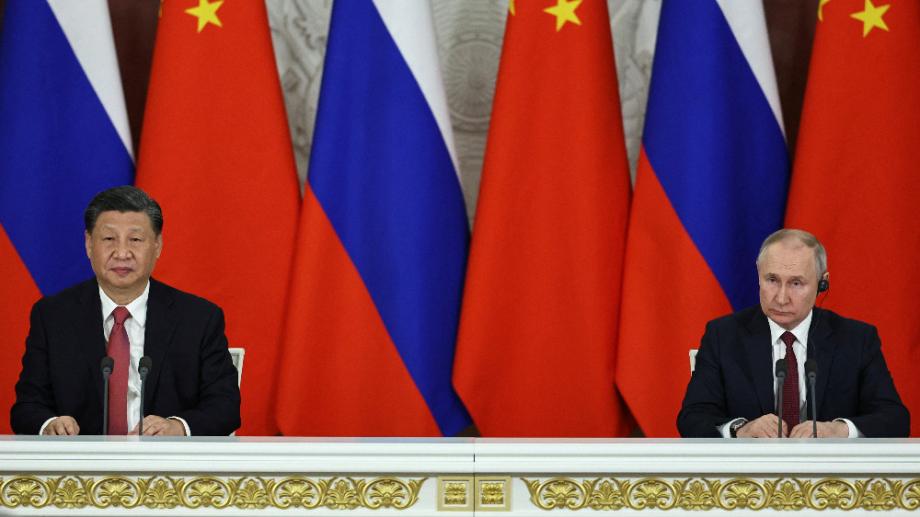
Putin’s recent framing of ties at a “historically high level” is potentially noteworthy. He usually echoes China’s characterization of relations as reaching “an unprecedentedly high level,” including recently at a November 2023 United Russia-Communist Party of China dialogue.
Moreover, Putin’s framing of a “historically high level” in bilateral relations in November 2021 occurred amid frustrations over the Power of Siberia 2 pipeline negotiations. Gazprom announced in October 2021 that they planned to finalize project details in early 2022, only to backtrack amid limited Chinese interest. Then, as now, Putin’s framing of bilateral ties as reaching only a “historically high level,” rather than an “unprecedently high level,” may be a subtle sign that Moscow is aggravated by a lack of progress on Power of Siberia 2 pipeline negotiations.

Still, other explanations are possible. The rhetorical divergence could alternatively simply reflect sloppy work by Kremlin staff, for instance.
In sum, political and economic ties between China and Russia remain very strong. At the same time, China’s willingness to sustain Russian coal imports is increasingly in doubt, while Russia’s hopes for the Power of Siberia 2 pipeline appear to be dimming. China’s development of clean energy technology continues to alter the terms of its interactions with Russia gradually but perceptibly.
- Previous President of Uzbekistan Shavkat Mirziyoyev paid a state visit to Tajikistan
- Next North Korea’s Hwasong-1 “Guam Killer” ballistic missile is game-changer



